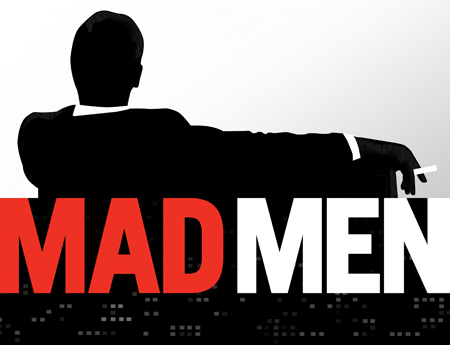'Mad Men'

The smarter way to stay on top of broadcasting and cable industry. Sign up below
You are now subscribed
Your newsletter sign-up was successful
Related: Inductees Forge Individual Paths To Success
In September, Matthew Weiner was still putting the finishing touches on Mad Men. The final three episodes had yet to be edited, but the number of people working on the show had winnowed to 20. The actors finished their work three months earlier, and the exact premiere date for part two of the final season, loosely scheduled for spring 2015, had yet to be announced. So how was Weiner holding up?
“I’m actually kind of in a state of transformation,” he says. “It’s the whole thing. I was really angry for a while. Then you feel frustrated a little bit, then relieved, obviously.” Tired was the most recent feeling, the toll of more than seven years of overwork and under-rest. “I had a period there where I was saying good-bye to about 10 people every day, and that is very, very upsetting.”
Mad Men didn’t just put Weiner—a decade ago a veteran TV writer like any other, wielding a pilot script that nobody wanted to produce— at the forefront of a wave of television creators who achieved acclaim usually reserved for feature-film directors. It transformed AMC, the network that brought it to the screen. It arguably transformed television. And it imprinted itself and its central character, 1960s Madison Avenue ad man Don Draper, on popular culture in a way that transcended its ratings.
“I love when I read the newspaper and I read a Don Draper reference, and they don’t put in parentheses, ‘AMC’s Mad Men’,” says Charlie Collier, president and general manager of AMC. “They just call something ‘Draper-esque.’ It’s such a nod to the breadth of the character, the depth of the characters [Weiner] created.”
Weiner created those characters while working as a writer on CBS’ Becker in the late 90s. He submitted the pilot script for Mad Men to David Chase, who hired him on HBO’s The Sopranos. But HBO and Showtime passed on making Mad Men. When the script arrived at AMC, the network had never had an ongoing series. Its greatest original-programming success was the miniseries Broken Trail, starring Robert Duvall, a Western that won four Emmys.
“We began looking for that which we thought would really distinguish us and would have a bit of a sense from what was a movie heritage to what was a scripted dramatic series present, and Mad Men fit the bill exquisitely,” says Josh Sapan, CEO of AMC Networks.
The smarter way to stay on top of broadcasting and cable industry. Sign up below
Back when the show existed only on the page, the fit was not obvious. Sapan gave Weiner’s pilot script to a small number of trusted TV-business friends outside of AMC. “Either oddly or not oddly, they all said, ‘I don’t think this is a good idea.’”
Making what he calls “hardly a comfortable decision,” Sapan pulled the pilot trigger anyway. But his advisers weren’t the only ones who were nonplussed. Lionsgate initially passed on the chance to produce with AMC.
“We all loved it creatively,” Lionsgate television chairman Kevin Beggs says of the script. But estimates for how the show would perform in the international market, where producers have their best shot to recover deficits, were bad. AMC made the pilot on its own, then took it back to the studio market. Given a second chance, Lionsgate jumped on board. Beggs now credits Mad Men with putting the company’s TV business “on the big stage among independent television studio suppliers in a way that we had not been before.”
It had arguably greater impact for AMC.
“In rare cases, I think shows really helped define networks and give them a renewed or changed identity,” Sapan says. “Mad Men gave AMC its identity, and for that we’re really grateful to Matt Weiner.”
But the show’s influence was felt outside just AMC and Lionsgate. Beggs argues that it changed the marketplace.
“I look at Mad Men as the show that ushered in a widespread offering of these auteur-driven series,” Beggs says. The Sopranos broke that barrier for so-called premium networks, but “that was not the expectation in basic cable.” He adds that Mad Men’s success, particularly its 15 Emmys, led to “an expectation that every network will have one of these. That is incredibly difficult.”
That Mad Men made television a safer place for ambitious dramatic storytelling seems a given. But Weiner is ambivalent. He credits the success of The Sopranos for emboldening AMC to make Mad Men and Breaking Bad possible. He also notes that many other networks at the time were only looking for Sopranos clones.
Weiner recalls watching the pilot for The Cosby Show three decades ago. He characterizes its structure as “mundane” and “unusual”— two words that might sound dismissive when not coming from the creator of Mad Men.
“It was completely original, aside the fact that it was filled with Bill Cosby, who was a bona fide TV star many times over,” Weiner says. “I remember watching it and thinking ‘Wow, this is really different. They’re going to be doing amazing, different things now.’ And really all it resulted in for the next five years were 25 shows that were just like The Cosby Show.”
He adds, “But the same company [NBC] that did that then took a chance on Seinfeld. So you just sort of hope that people taking a risk makes it easier for other people to take a risk.”
